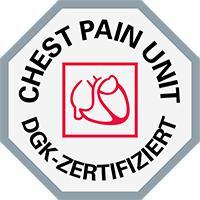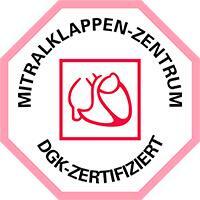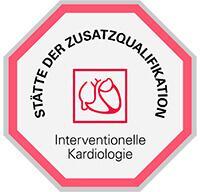Myocarditis is an inflammation of the heart muscle. Heart disease is usually caused by a viral infection, but can also be the result of bacterial or fungal infections, alcohol abuse, some autoimmune disorders, and a consequence of taking certain medications. Weakening of the body's immunity and autoimmune disorders are important predisposing factors to heart disease.
Content
- What causes myocarditis?
- Complications of myocarditis
- Who is at risk of developing myocarditis?
- Clinical manifestation of myocarditis
- Treatment of myocarditis
- Can myocarditis be the COVID-19 complication?
- The cost of treatment in hospitals in Germany
- How to choose a hospital for treatment in Germany?
What causes myocarditis?
Inflammation of the heart muscle can occur due to any infection, most often viral. Cases of myocarditis of non-infectious origin are also quite common, which include certain medicines, harmful chemicals, or radiation. In many cases, the exact cause cannot be determined.
The most common causes of infectious myocarditis in medicine include:
- Viral infections, among which enterovirus Coxsackievirus, influenza A and B virus, measles, rubella, infectious mononucleosis, and hepatitis B are the most widespread.
- Bacterial infections, primarily staphylococcal, streptococcal, and diphtheria.
- Some parasites, primarily trypanosomes and toxoplasmas.
- Fungi (candida, agents of aspergillosis and histoplasmosis).
Non-infectious factors that cause myocarditis include:
- Intake of certain medicines (antibiotics, sulfonamides).
- An excess of thyroid hormones.
- Impaired renal function.
- Connective tissue diseases (nonspecific ulcerative colitis, scleroderma, rheumatoid arthritis, rheumatism, systemic vasculitis, granulomatosis, systemic lupus erythematosus).
- Factors of unspecified origin (idiopathic myocarditis).
Regardless of the cause of the cardiac disease, changes occurring in the heart muscle are of a similar nature. As a result of inflammation, myocardial edema develops, and blood supply to the heart deteriorates. Individual cells may be destroyed with the release of substances into the blood, including protein fragments, which are perceived by the body's immune system as foreign due to their similarity to the proteins of some bacteria and viruses. This leads to activation of the immune system and the development of a reaction against its own tissues. The severity of these reactions largely determines the severity of the cardiac condition.
Complications of myocarditis
The consequences of neglected myocarditis are negative processes in the heart muscle. Depending on the course and form of the cardiac disease, irreversible changes may occur in the myocardium, leading to a disruption of the normal function of the heart muscle, which is the pumping of blood. In extreme cases, the lesions are so severe that they lead to cardiac arrest and sudden death.
The prolonged course of myocarditis leads to abnormal enlargement of the heart muscle. The process is irreversible, so in such cases, the patient is prescribed therapy and a complete revision of the lifestyle.
The most severe consequence is considered to be gigantocellular myocarditis. Most patients with this diagnosis need heart transplantation. Otherwise, cardiologists give an unfavorable prognosis for life. Approximately 90% of patients die within 4-5 years if no heart transplant surgery is performed.
The inflammatory process in the myocardium contributes to scarring of the muscle tissue, which in turn completely disrupts the heart rhythm and blood supply. This leads to the development of heart failure and usually ends in CHD.
But in most cases, normal heart function is restored, although it requires long-term treatment and lifelong monitoring by a cardiologist.
Who is at risk of developing myocarditis?
The most common cause of myocarditis is viral pathologies of different origins. Therefore, anyone who has had herpes, hepatitis B, C, rubella, chickenpox, measles, diphtheria, and even the flu is at risk. Since most people have been diagnosed with some kind of viral disease, they must have a preventive examination to rule out the presence of inflammatory processes in the heart. This can later save a life.
The risk of developing myocarditis increases in proportion to the presence of infectious pathologies. People with cardiovascular pathologies caused by the following pathogens need to pay attention to their health condition:
- Bacteria provoke the development of tuberculosis, chlamydia, and staphylococcus.
- Fungal genera, such as aspergillus fumigatus and candida, can cause such common diseases as tonsillitis, laryngitis, otitis media, conjunctivitis, candidiasis, etc.
- Parasitic worms: ascarids, echinococcus, trichinellas, or giardia.
People with diabetes of any type, thyroid diseases, and autoimmune pathologies are also at risk.
People whose professional activity is connected with work at enterprises with harmful environmental conditions, where there is a possibility of heavy metal poisoning, are at risk. Taking certain medications can provoke myocardial inflammation. For example, anti-allergic cephalosporins or antidepressants have an extremely negative effect on cardiac activity.
Social factors also play an important role. Alcohol abuse, smoking, and other dangerous and harmful addictions contribute to the development of myocarditis.
Clinical manifestation of myocarditis
In any type of myocarditis, patients have several similar symptoms, including chronic fatigue, general weakness, pain in the chest and under the left shoulder blade, increased sweating, and shortness of breath.
An extended group of signs indicating the presence of a particular type of myocarditis should also be noted.
Minor symptoms are characteristic of infectious and allergic myocarditis. The patient experiences slight weakness perceived more as a consequence of fatigue than as a symptom of a dangerous disease. By taking medications, the person does not even think about the fact that dangerous inflammatory processes are going on in the body.
Idiopathic or rheumatic myocarditis is manifested by acute, burning pain in the heart and left arm. The clinical picture includes lethargy, limitation of motor function, constant shortness of breath, in some cases, night fever.
Diffuse localization of the inflammatory process, affecting the whole myocardium, is characterized by acute heart failure and its characteristic symptoms. There are edemas, bruises under the eyes, limbs become numb and get a bluish tint.
Bacterial myocarditis is characterized by disruption of the circulatory system. There is a high probability of thrombus formation in the main cardiac arteries. It is manifested by a change in the color of the skin, shortness of breath, even at rest, and nagging pain behind the sternum.
The severity of the pathology is often reflected in the appearance of the patient. In the initial stages of the inflammatory process, no visible changes are observed. The patient may complain to the attending physician about general weakness though. As the disease worsens, the patient's lips become blue, the extremities become pale, and there is swelling under the eyes. In the severe form, swollen veins in the neck and arms, an excruciating dry cough, and shortness of breath that interfere with habitual activities are detected.
Treatment of myocarditis
Treatment of myocarditis depends on the symptoms of the pathology and its form. In mild cases, therapy is not required, myocarditis may pass on its own. In severe cases, quality treatment is essential; support of a cardiac function is required until the inflammatory process completely disappears.
The main tasks of therapy for myocarditis are to eliminate the causes of the disease and to stop complications. To reduce the load on the organ, the patient may be hospitalized or given specific recommendations to limit physical activity (bed rest).
To treat myocarditis, first of all, medications are used. For this purpose, the patient may be prescribed nonsteroidal anti-inflammatory drugs, anticoagulants, diuretics, beta-blockers, glucocorticosteroids, or antibiotics. The most appropriate remedy is selected according to the symptomatology, form, and cause of myocarditis (or associated pathology). If the drug therapy was ineffective, the patient is subjected to repeated laboratory blood tests and then other medications may be prescribed. If myocarditis developed during pregnancy, a woman is prescribed supportive therapy.
In especially advanced clinical cases, more serious treatment is resorted to. The patient is often provided with extracorporeal membrane oxygenation. This is a machine procedure, which involves saturating the blood with oxygen. Intra-aortic balloon counterpulsation may be performed to reduce the load on the muscular organ. Sometimes specialists resort to using ventricular pumps. They mechanically pump blood from the lower sections of the muscular organ into the general circulation. In cases of pronounced heart failure, assistive pumps are required. They allow the heart muscle to recover.
Can myocarditis be the COVID-19 complication?
In late July, the results of a small study performed in Germany were published in the German cardiology journal. Randomly selected patients who have had COVID-19 underwent cardiac MRI.
Compared with the control group, which included both healthy volunteers and persons with a spectrum of risk factors similar to that of the main group patients, COVID-19 survivors had lower LV ejection fraction, larger LV dimensions, and higher T1 and T2 values. Any structural abnormalities according to MRI data (increased T1 and T2 indices, delayed gadolinium accumulation, increased signal from pericardium) were registered in 78%, and signs of myocardial inflammation – in 60% of patients after COVID-19. The frequency of fibrosis detection was 20% in COVID-19 patients and 7% in the control group. Patients with the most pronounced changes on MRI underwent endomyocardial biopsy, which demonstrated pronounced lymphocytic infiltration. The degree of myocardial damage was independent of concomitant pathology.
The results were extremely alarming for the public because on a population scale, they could mean a big surge of cardiac rhythm disturbances and CHF in the near future. This article turned out to be the most popular cardiology publication of the last 10 years (based on download statistics).
A wave of criticism of errors in the statistical analysis led to corrections, which did not fundamentally affect the main finding: suffering COVID-19 (even a mild course) is associated with a high risk of delayed heart damage.
The cost of treatment in hospitals in Germany
The cost of treatment in hospitals in Germany depends on the diagnosis and the need for additional examinations and therapy, so it is calculated individually for each patient. The cost of treatment in hospitals in Germany is drawn up based on an invoice issued by the clinic.
To give you an idea about the cost of treatment in Germany in your case, we have listed the average prices for medical services below. Prices for treatment in hospitals in Germany are regulated by German law. However, the final treatment costs are influenced by many factors such as co-morbidities, necessity to consult allied specialists, your room comfort, treatment method, amount, and cost of necessary materials, and so on. Therefore, the final price may vary significantly from the price listed here, either upward or downward.
- The prices for diagnostics of myocarditis start at 577 EUR.
- The cost of treatment with conservative therapy and differential diagnosis starts at 5,406 EUR.
- The cost of treatment with pericardial drainage starts at 6,571 EUR.
Contact Booking Health to know the cost of treatment in Germany in your clinical case.
How to choose a hospital for treatment in Germany?
You can easily undergo professional qualified treatment of myocarditis in Germany in any medical center, but how to choose the institution with the right specialization, the decent level of diagnostic equipment, and the professionalism of doctors that would fit your needs?
You can get assistance from Booking Health regarding the hospital selection, and organization of your treatment in Germany in general. Fill in the request form on the Booking Health website to know more about the services Booking Health provides.
Authors: Dr. Nadezhda Ivanisova, Dr. Sergey Pashchenko
















